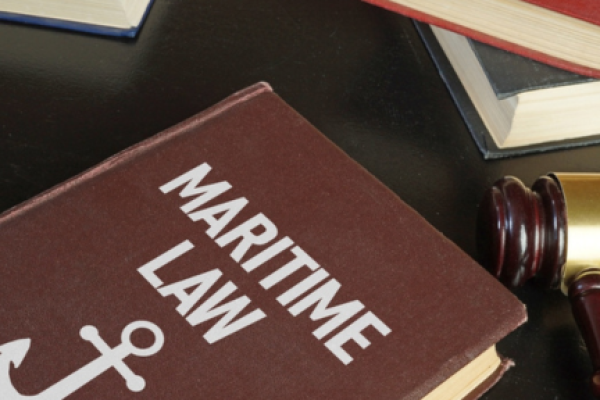
Paul Brewer
Published: November 13, 2024
Background:
Plaintiff and crewmember Aaron Trejo sustained injury whilst working on-board Sea Harvest’s fishing vessel the Atlantic Bounty. Suit was filed following which the defendant filed a motion to have the case dismissed in favour of arbitration, as per the terms of the employment contract.
The Contract:
The employment contract contained an agreement between the parties to resolve disputes via arbitration in Philadelphia. Importantly the contract included provisions requiring that the validity of the arbitration agreement should be determined by the arbitrator and that where the Federal Arbitration Act (FAA) did not apply, the laws of the State of New York were to be applied in determining enforceability of the provision.
The Motion to Dismiss in favour of Arbitration:
It was accepted that the employment contract was unenforceable under the FAA, which contains an exception for contracts of employment for seafarers and railroad employees. However, the court noted this does not necessarily make it unenforceable but rather it becomes a matter of state as opposed to federal law and so the court should look to state law to decide whether arbitration should be compelled.
Thereafter, the court remarked that there was an important first step to consider before deciding whether to enforce the arbitration clause. And this was to whom does that decision fall? Therefore, the court did not consider the issue of enforceability but instead concentrated on who should be the one to determine this. When focusing on this narrow issue the court noted the clear and unmistakable intent of the parties to arbitrate disputes and so ruled that the decision as to enforceability rested with the arbitrator, who would then rule as per New York law.
The Court’s decision explained:
Firstly, the court noted that the employment contract contained the following clause “If this agreement to arbitrate is determined to be exempt from enforcement under the FAA, the laws of the State of New York shall be applied in determining the validity and enforceability of this agreement”.
The FAA creates a strong federal policy in favour of arbitration but does contain the following exemption:
“Nothing herein contained shall apply to the contracts for employment of seamen…."
So the FAA did not apply to this case but, as noted earlier in this article, the court stated that this does not automatically make the arbitration clause invalid. The employment contract included a provision stating that if the agreement to arbitrate is deemed to be exempt under the FAA then the laws of the State of New York should apply. Under New York law if the parties to an arbitration agreement clearly and unmistakably delegate the question of arbitrability to an arbitrator, a court must respect that decision.
This was demonstrated in Smith Barney Shearson Inc. v. Sacharow (New York 1997) holding that a commitment between the parties to arbitrate even the arbitrability issue should be respected. The court specifically noted that the “clear and unmistakable evidence [is] that the parties intended that it would be decided by the arbitrator” and that the entire matter should be kept out of the courts.
The question was also considered in Revis v. Schwartz (New York 2020) which held that “When the parties’ contract delegates the arbitrability question to an arbitrator, a court may not override the contract.” In fact, the United States Supreme Court has consistently held that parties may delegate threshold arbitrability questions to the arbitrator, so long as the parties’ agreement does so by “clear and unmistakeable evidence”.
The court did acknowledge that some of the cited cases did not involve FAA exempt contracts, as was the case in the claim of Aaron Trejo v Sea Harvest. However, they concluded this was not relevant as none of the cases suggested that whether a court must respect a clear and unmistakable delegation of the arbitrability question is dependent upon whether the contract is covered by the FAA.
So the motion to dismiss the case and allow the arbitrator to rule on the validity of the arbitration agreement was granted.
Because the parties had shown a clear intent to arbitrate and to allow the issue of applicability of the clause to be determined by the arbitrator this persuaded the court to rule in favour of the defendant. In its findings the court referred to the case of Kozur v Atlantic Bounty (New Jersey 2020) in which the federal court judge ruled that the arbitration agreement was enforceable and found that the general requirement of uniformity in general maritime law does not preclude the application of state law.
The Arbitrator’s decision:
Following the district court’s opinion, the matter went before the arbitrator. They reviewed the contract and noted that both an arbitration clause along with a requirement to arbitrate under JAMS rule was present in the employment contract. JAMS rules incorporate the power to resolve arbitrability to the arbitrator.
Under New York state law the arbitrator had to consider whether it was clear that the parties had agreed to arbitrate. It was concluded that they had. The next question was whether to order the claimant to do so would fall foul of public policy. New York public policy strongly favours arbitration but is prohibited on the following grounds:
- Child custody issues under New York’s Domestic Relations laws
- Disqualification of attorney from representation; and
- State antitrust law
The claims arising in this case did not fall into any of these three areas.
Following on from this the case was arbitrated, in August of this year, and a defence verdict returned.
Conclusion:
The enforcement of arbitration clauses in agreements is becoming more common. On 29th February 2024 the US District Court for the Eastern District of Texas, in the case of Jeffrey Gotreaux v Stevens Transport found in favour of enforcing an arbitration agreement.
This case provided some helpful guidance noting that within the scope of an arbitration agreement, ambiguities are resolved in favour of arbitration.
It further noted that where employment of a person is not conditional upon them signing an arbitration agreement then that agreement is not considered to be part of the crewmember’s employment contract.
Even were the agreement to be deemed to be part of the employment contract, thereby making it exempt under the FAA, the court held that Texas state arbitration law (TAA) would still apply. So regardless of whether the agreement is exempt under the FAA it is still enforceable under the TAA, if it falls within the TAA’s provisions.
It should be noted that under the TAA a claim for personal injury is not arbitral unless an arbitration agreement is signed by both parties and their attorneys. However the court in Gotreaux did not consider this point as the claim was not of a personal injury nature.
This point might make one think about whether an arbitration agreement would be upheld in Texas given this provision in the TAA.
However, in the case of seafarer personal injury claims, the FAA does not permit state law to add-on additional requirements that are not contained in the FAA. So one could make the argument that notwithstanding that a seafarer is exempt from being forced to arbitrate under the FAA, the FAA’s preemption applies more broadly.
Some ship-owners, within the agreement, call for the laws of a state where arbitration of personal injury claims is allowed. There are cases where the ship-owner had no connection to the jurisdiction noted in the contract, but where the arbitration provision was enforced nevertheless.
Related Articles
Articles
To arbitrate or not: Does it “matter”?
The UK Supreme Court's key decision on 20 September 2023 in Republic of Mozambique v. Privinvest clarified the Arbitration Act's application to Mozambique's claims in the English High Court. The ruling underscores the significance of precise arbitration clause drafting in commercial contracts for practitioners.
Articles




